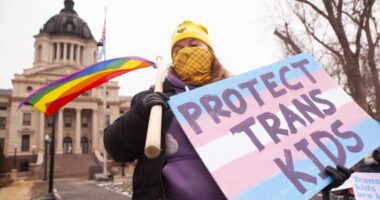
A Dutch special forces soldier who was one of three commandos shot outside a hotel in Indianapolis over the weekend has died of his injuries, the Dutch Defense Ministry said Monday.
The soldier, who has not yet been identified, was “surrounded by family and colleagues” when he died Sunday night, the ministry said in a statement.
The soldier was one of three members of the Dutch Commando Corps who were shot early Saturday morning in downtown Indianapolis.
The Dutch defense ministry said the other two wounded soldiers were conscious and able to speak.
The shooting broke out at around 3:30 a.m. in Indianapolis’ entertainment district, according to Indianapolis police. Responding officers found three men with gunshot wounds, they said, with all three subsequently taken to area hospitals.
Police previously said they believed an altercation between the three victims and another person or multiple people had unfolded in the lead-up to the shooting.
No arrests were announced in connection with the shooting as of early Monday morning.
The Indiana National Guard said the soldiers had been training at the Muscatatuck Urban Training Center, about 40 miles southeast of Indianapolis.
The Guard said the center was used for training by the Department of Defense “as well as other allies.”
Source: | This article originally belongs to Nbcnews.com










